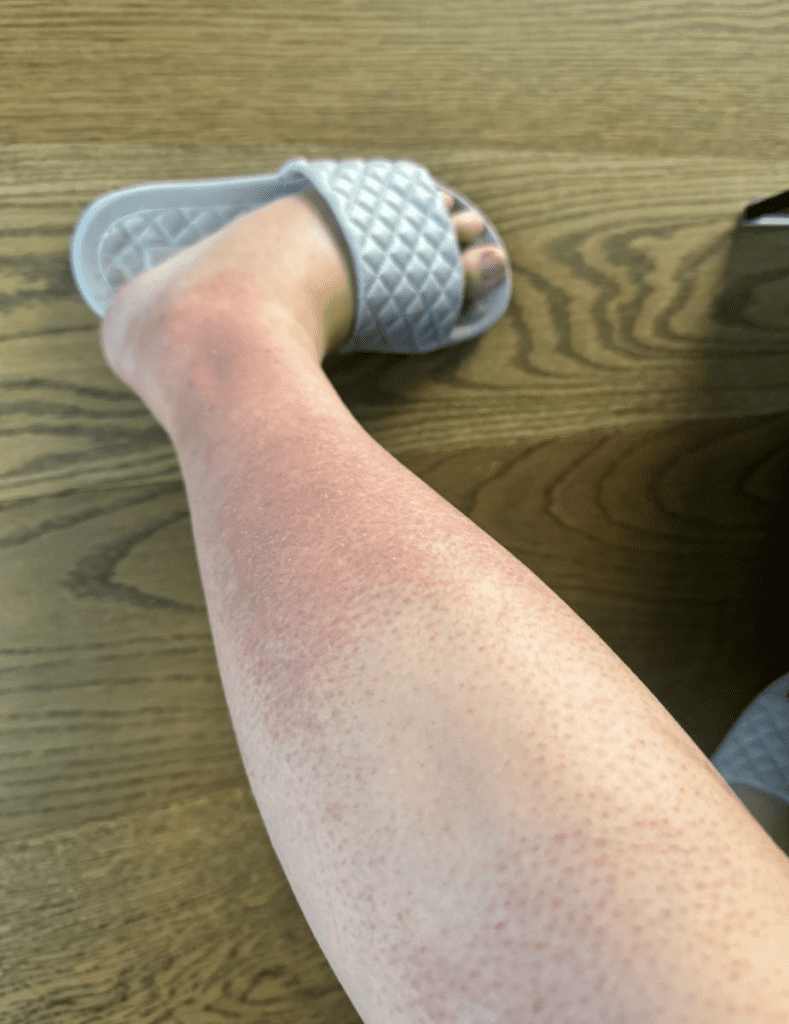Pregnancy is a time of incredible changes for your body. From hormonal shifts to physical adjustments, your skin often feels the brunt of these transformations. If you’re 18 weeks pregnant and battling an itchy, bumpy rash on your legs, you’re not alone.
Understanding Skin Changes During Pregnancy

Pregnancy triggers a whirlwind of changes in your skin. For some, it’s a glowing, radiant complexion. For others, it’s unexpected challenges like acne, dryness, or rashes. These changes result from fluctuating hormones, increased blood flow, and shifts in your immune response. Sometimes, these factors combine to make your skin more sensitive than usual.
Common Causes of Rashes in Pregnancy
There are several reasons why you might experience a rash during pregnancy. Here are some of the most common culprits:
- PUPPP (Pruritic Urticarial Papules and Plaques of Pregnancy): This itchy rash often appears in the third trimester but can sometimes show up earlier. It typically starts on the belly and may spread to the legs.
- Prurigo of Pregnancy: Small, itchy bumps caused by hormonal changes or immune system shifts can appear anytime during pregnancy.
- Eczema or Psoriasis: Pregnancy can worsen existing skin conditions or trigger flare-ups.
- Contact Dermatitis: An allergic reaction to products like lotion, laundry detergent, or even certain fabrics can cause itchy, bumpy skin.
- Cholestasis of Pregnancy: While rare, this condition causes severe itching (often without a rash) and requires immediate medical attention.
When to Seek Medical Help
Most pregnancy-related rashes are harmless, but some warrant urgent care. Watch out for the following symptoms:
- Severe itching without a rash.
- Yellowing of the skin or eyes (jaundice).
- Fever, pain, or blisters accompanying the rash.
If you notice any of these, contact your healthcare provider immediately. They could indicate a more serious condition that requires prompt treatment.
Simple Home Remedies to Soothe Itchy Skin
While you wait for your OB appointment, several home remedies can help reduce discomfort:
- Cool Compresses: Applying a cold, damp cloth to the rash can provide instant relief.
- Oatmeal Baths: Add colloidal oatmeal to a lukewarm bath to calm irritated skin.
- Moisturize Often: Use a fragrance-free lotion or cream to keep your skin hydrated and reduce dryness.
- Wear Loose Clothing: Opt for breathable, soft fabrics to avoid further irritation.
These remedies can help soothe the itchiness while protecting your skin.
Pregnancy-Safe Over-the-Counter Treatments
If home remedies aren’t cutting it, certain over-the-counter products may offer relief:
- Calamine Lotion: This classic remedy can ease itching and cool the skin.
- Hydrocortisone Cream: A low-strength hydrocortisone cream can reduce inflammation, but always consult a pharmacist or healthcare provider before using it.
- Antihistamines: Some antihistamines are safe during pregnancy and can relieve itching caused by allergies.
Even with these seemingly harmless treatments, double-check with your doctor or pharmacist to ensure safety for you and your baby.
Preventing Skin Irritation During Pregnancy

Preventing future flare-ups is just as important as finding immediate relief. Here are some tips to keep your skin calm:
- Stick to a gentle skincare routine with mild, fragrance-free products.
- Avoid hot showers, as they can strip your skin of moisture.
- Stay hydrated to support your skin from within.
- Use a humidifier to keep the air in your home from drying out your skin.
- Wear sunscreen daily to protect your skin from UV damage, even if you’re indoors.
These small changes can make a big difference in preventing irritation and keeping your skin healthy.
Natural Solutions and Alternative Therapies
For those who prefer natural remedies, a few options might provide relief:
- Aloe Vera Gel: Known for its soothing properties, aloe vera can cool and calm itchy skin.
- Chamomile Compress: Soak a clean cloth in cooled chamomile tea and apply it to the affected area to reduce inflammation.
- Essential Oils: Lavender or tea tree oil can help, but always dilute them with a carrier oil and consult your doctor before use.
Natural doesn’t always mean safe, especially during pregnancy. Use these remedies cautiously and consult a healthcare professional when in doubt.
Preparing for Your OB Appointment

When you finally meet with your OB, being prepared can make the appointment more productive. Here’s how:
- Keep a Symptom Diary: Note when the rash started, its progression, and anything that makes it better or worse.
- Document Treatments Tried: List any home remedies or over-the-counter products you’ve used.
- Bring Photos: If the rash has changed or improved, photos can help your doctor assess it accurately.
By providing detailed information, you’ll help your OB diagnose the issue and recommend the best course of action.
Conclusion: Taking Control of Your Skin’s Comfort
Pregnancy may come with its fair share of challenges, but managing an itchy rash doesn’t have to be overwhelming. By understanding the possible causes, trying safe home remedies, and preparing for your OB appointment, you can find relief and focus on the exciting journey ahead. Your skin might be acting up now, but with the right care, it’ll feel as good as new in no time.


